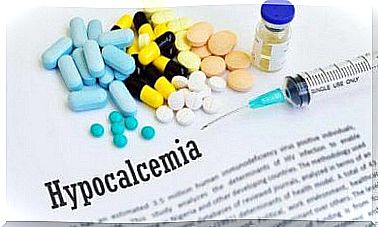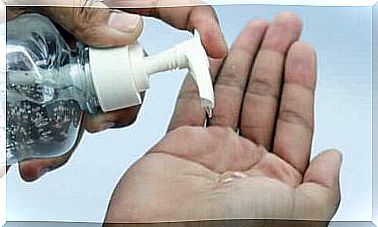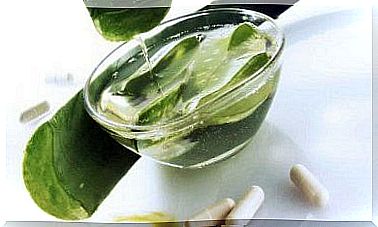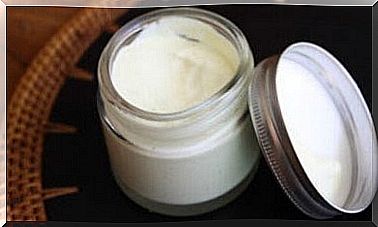5 Signs That You Are Retaining Water
Generalized or localized swelling in certain parts of the body can be a clear signal that you are retaining water, so look for solutions.
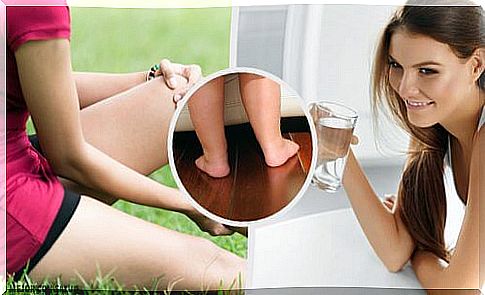
Fluid retention, or edema, is an infection, pathological or not, caused by an excessive accumulation of fluid in the tissues.
- When pathological, it is usually caused by circulatory problems, congestive heart failure, and kidney or liver disease.
- On the other hand, if this is not the case, it can be attributed to a simple dilation of the veins, during the periods when the temperatures are higher.
The consequences of water retention are:
- Unexplained weight gain
- Swelling in the legs and ankles
- An increase in abdominal circumference or a decrease in the need to urinate
The cases of edema occur especially in the third age. However, adolescents with this disease have also been diagnosed.
This disease is more common in women, especially for hormonal or nutritional reasons.
Fluid retention can be a warning that the patient is suffering from a certain disease, be it heart, kidney, liver or stomach.
It also occurs during menopause, during pregnancy or during a sedentary lifestyle.
How to be aware of water retention
1. The lower limbs

The lower limbs are the first parts of the body affected by fluid retention. Particular attention should therefore be placed on the legs and feet.
At first, the patient may experience fatigue and heaviness in the legs due to the lack of proper drainage.
2. Thicker ankles
The edema makes the ankles appear thicker than normal.
From the first hour of the day to the night, this part of the body increases in size over the hours.
3. Leg cramps

Coming back to the legs, they too can swell. Although people don’t necessarily perceive it.
One symptom that may reveal that you are holding back fluids is continuous cramping in this area, as well as weakness.
4. An inflammation of the belly
Another place that is attacked by water retention is the belly.
Some people think that they get fat when it is all due to the swelling caused by the edema.
People go on long and rigorous diets thinking that the reason for the swelling is fat, when in reality there is a problem in their excretory system.
5. Swelling of the face
The swelling from the edema also attacks the face. It is particularly noticeable on the cheekbones and eyelids, which increase in size slightly.
Thus, excess water increases the roundness of the face.
Some solutions
If you think you are retaining water, you can do the following:
Drink more water
Although it may sound strange, when the body retains fluids it is because it feels dehydrated.
To eliminate this sensation, the ideal is to provide it with all the water you need, so as not to store it in excess.
Submit to a low calorie and sodium diet
As long as you are in this state, it is recommended to limit the consumption of flour, refined sugar fats and salt.
- Get some exercise. Apparently, this could be the cure for all ailments in the body. Exercise will help you remove excess fluid through sweat and urine, and it will also improve circulation. This routine should last at least 20 minutes per day.
- Consume diuretic infusions. Certain herbs like dandelion, fennel, parsley, and green tea will help you use the bathroom more regularly. You can also add vegetables such as carrots and cucumbers to your diet. As well as fruits such as watermelon and melon.
- Eat foods rich in potassium. Corn, cauliflower, bananas, and asparagus can also help eliminate water retention thanks to their high potassium content.
- Avoid dehydrating drinks. In particular alcohol, including beer and vodka, as well as coffee. As explained earlier, when the body feels that it does not have enough water, it retains fluids.
- Incorporate protein. eat meat, chicken, fish, seafood, and legumes. Lack of protein improves water retention.
- Do not use clothes that are too tight. This will generate unnecessary discomfort and cause your body, instead of deflating, to inflate over time.
- Don’t be sedentary. If you are working too long while in a chair, you should get up for at least five minutes every hour. Thus, the body will not enter a sedentary state.
- Avoid excessive heat. Stay away from environments with excessively high temperatures, as heat produces dehydration, in this situation the body retains fluids.
